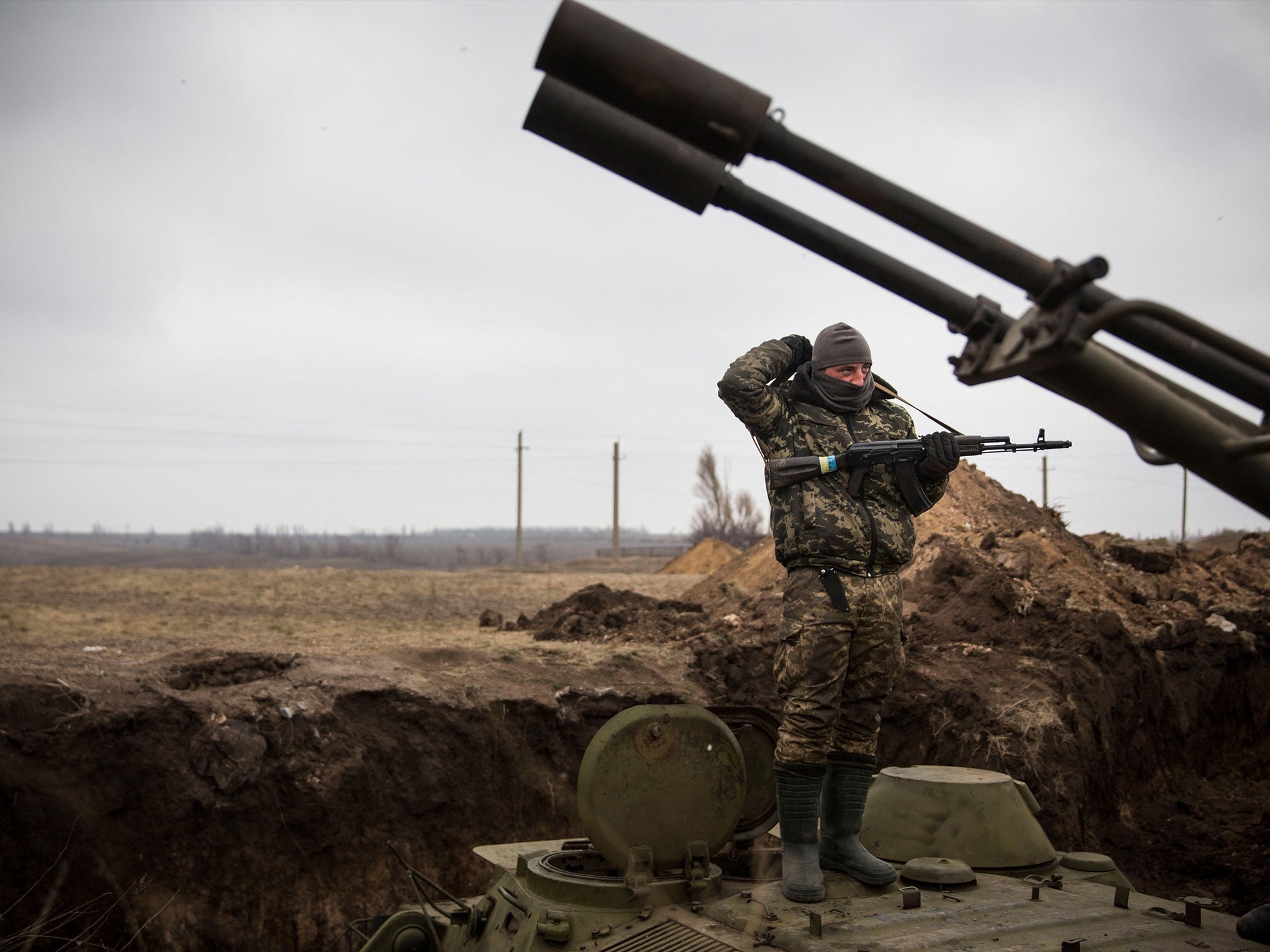Ukrainian hardliners push to cut diplomatic ties with Russia
Move would dramatically increase tensions and the possibility of full-scale conflict returning to the east of the country

Your support helps us to tell the story
From reproductive rights to climate change to Big Tech, The Independent is on the ground when the story is developing. Whether it's investigating the financials of Elon Musk's pro-Trump PAC or producing our latest documentary, 'The A Word', which shines a light on the American women fighting for reproductive rights, we know how important it is to parse out the facts from the messaging.
At such a critical moment in US history, we need reporters on the ground. Your donation allows us to keep sending journalists to speak to both sides of the story.
The Independent is trusted by Americans across the entire political spectrum. And unlike many other quality news outlets, we choose not to lock Americans out of our reporting and analysis with paywalls. We believe quality journalism should be available to everyone, paid for by those who can afford it.
Your support makes all the difference.Kiev has once again made for angry headlines in Moscow as news filtered through that the Ukrainian parliament may vote to break off diplomatic relations with its eastern neighbour as early as next week.
An amendment to a bill “on the reintegration of the Donbass” – the area in eastern Ukraine where conflict broke out in 2014 – would see Ukraine outsource its diplomatic functions in Russia to a third country. The passage of the as-yet-untabled amendment is by no means secured, and the results would not be legally binding on the executive. But, if adopted, the change would dramatically increase tensions and the possibility of full-scale conflict returning to the troubled east.
The Independent has learned that the Ukrainian government is negotiating to keep the amendment away from a second reading of the bill on 16 November.
The reported author of the amendment, Ivan Vinnik, is nominally a member of the presidential faction in parliament. But he is also known for friendly links with coalition partners, the People’s Front – and this may be the source of the issue.
Several MPs suggested to The Independent that the initiative could be the result of an ongoing power dispute between President Petro Poroshenko and the leading People’s Front politician, Interior Minister Arsen Avakov. In early October Mr Avakov’s close adviser Anton Gerashchenko admitted the two men were at loggerheads. Four weeks later, the minister’s son, Alexander Avakov, was arrested on corruption charges. Charges that Alexander denies. Mr Avakov believed the President was behind the arrest, the well-connected news agency Liga.Net wrote soon after.
By the time of publication Mr Vinnik had not answered The Independent’s calls and requests for comment. But in interviews to local media he said he intended to oblige the executive to act.
“I will suggest severing ... Diplomatic relations with the aggressor Russia,” Mr Vinnik told Interfax-Ukraine. He said neighbouring Belarus or neutral Switzerland would be ideal candidates to carry out Ukraine’s representative functions in Russia.
An amendment to break off diplomatic relations would put Ukraine’s President in a tight spot. European and American partners will push hard against it. Ukraine’s influential nationalist lobby will push hard for it.
The Ukrainian Foreign Ministry dismissed the suggestion of a break-off of ties as “impossible”.
“Time and again, populists like to take the issue out of their pockets,” said political director Oleksii Makeiev.
Relations between Ukraine and Russia remain fraught. Both sides prefer to talk past each other and this latest development will not change that.
In the conflict zone in the east, where Russian-backed rebels are fighting government forces, the situation remains violent and unpredictable. In recent weeks, OSCE (Organisation for Security and Cooperation in Europe) monitoring teams have reported signs of escalation. Principal deputy chief monitor Alexander Hug told The Independent his team had documented a “steady rise in the level of violence” since the latest ceasefire was signed on 25 August. There were 40 recorded instances of the use of indiscriminate, multiple-launch rocket systems in the last week alone.
The escalation would continue “so long as heavy weapons remain in place and the sides maintain positions close to one another”. Prohibited equipment such as tanks, artillery and rocket systems – which should have been withdrawn under the provisions of the 2015 Minsk peace treaty – continue to account for the majority of civilian casualties.
On Wednesday, Moscow wasted no time in using the story as proof of Ukraine’s “desire” to exit the Minsk process.
“Ukraine has taken many decisions that work against the regulation of the conflict,” said presidential spokesman Dmitry Peskov. “This decision will hit the interests of people in both Ukraine and in Russia.”
Expert Alexei Chesnakov – who is close to the man in charge of Russia’s Ukraine policy, the presidential aide Vladislav Surkov – said the move, if implemented, would have terminal consequences for the peace process.
“A break-off would mean Ukraine withdrawing from all bilateral processes,” he told The Independent. “And that includes negotiations for a peace settlement in the Donbass.”
Join our commenting forum
Join thought-provoking conversations, follow other Independent readers and see their replies
Comments